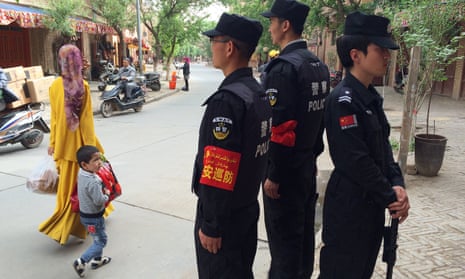China has “effectively ejected” an American journalist from the country, a journalists’ association has said, after she won a reputation for hard-hitting reporting on the country’s troubled western Xinjiang region.
Megha Rajagopalan, a correspondent for BuzzFeed, wrote on Twitter that she would be moving on to another beat after the foreign ministry in Beijing “declined to issue a new visa”.
The decision to deny her a visa was condemned by the Foreign Correspondents’ Club of China (FCCC). “We are attempting to get clarity from the foreign ministry on its reasoning for effectively ejecting a credentialed foreign journalist,” it said in a statement.
“We find this extremely regrettable and unacceptable for a government that repeatedly insists it welcomes foreign media to cover the country.”
Rajagopalan, a former board member, had “conducted herself according to the highest journalistic standards while in China”, the organisation said.
China has previously delayed visas, or refused to renew them, for individual correspondents or media outlets that have angered the government with their coverage.
In 2012 a reporter for al-Jazeera English was refused a visa renewal, prompting the broadcaster to shutter its China bureau. In 2015 a correspondent for France’s L’Obs magazine was also forced to leave, after writing a critical report on Beijing’s policies in Xinjiang.
The foreign ministry said Ursula Gauthier’s article in current affairs magazine L’Obs, “openly supports terrorist activity, the killing of innocents and has outraged the Chinese public”.
Several reporters for the New York Times were also refused visas, in the years after a 2012 story on the wealth of the family of the former premier Wen Jiabao.
Rajagopalan had been recognised, by her peers and with press awards, for extensive and in-depth reporting on mounting surveillance and repression in Xinjiang.
She did not directly accuse the Chinese government of expelling her for coverage of Xinjiang, saying the ministry told BuzzFeed it was a procedural issue. But she also noted that she would continue to cover developments in the region from a distance.
“I also want to make clear that though I can’t do it from inside China any more, I’m not going to stop reporting on and speaking about state surveillance, repression and incarceration of millions of Muslim ethnic minorities in Xinjiang,” she said on Twitter.
The foreign ministry said only that it handed visas “according to laws and regulations”, the Associated Press reported.
